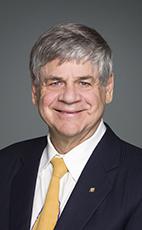Mr. Speaker, unfortunately I will not have time to do my 20 minute speech which was next, but I would like to get a couple of points into my question.
I understand the member's hesitancy of speaking after the passionate speech from the member for Acadie—Bathurst who asked if we are proud of our $100 billion tax cut, the biggest one in history. I would say, yes, we are definitely proud that a majority of that went to people who were not high income people and proud of the child tax credit that helps poor people.
He also said that people would rather have jobs than employment insurance and of course, I agree. He talked about the gas pipeline in New Brunswick and hopefully he will support our pipeline along the Alaska Highway that would create many jobs for British Columbia and Yukon.
One of the points that no member has talked about today is the balance in the EI. There are years when we must pay out more, when the economy is much worse than it is now. The government then must pay in which means balancing that fund with the fact that we must pay extra now.
I want to applaud the member that just spoke for the most part, until the last 30 seconds. It was one of the best speeches in the House today because I have always had the same thoughts about education that he had, that it is one of the key issues, especially in the changing world. I wonder if he could talk about advanced provisions to use the fund for education and for the disabled. I had a constituent approach me who thought we could change the rules because a disabled person may get weak and may not get his number of weeks in and maybe we--

